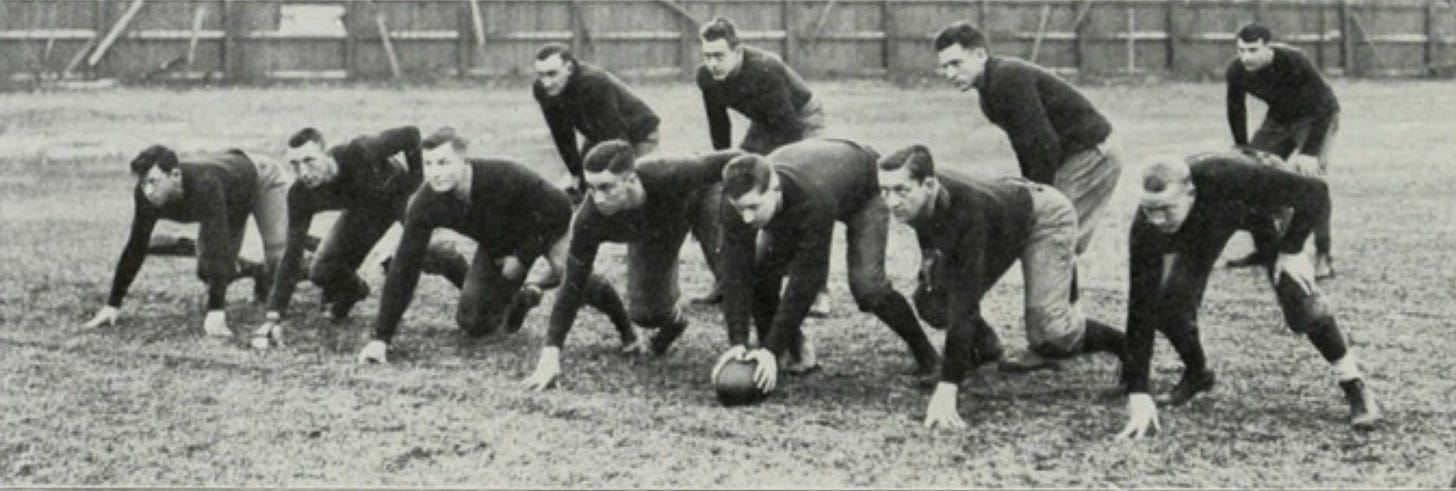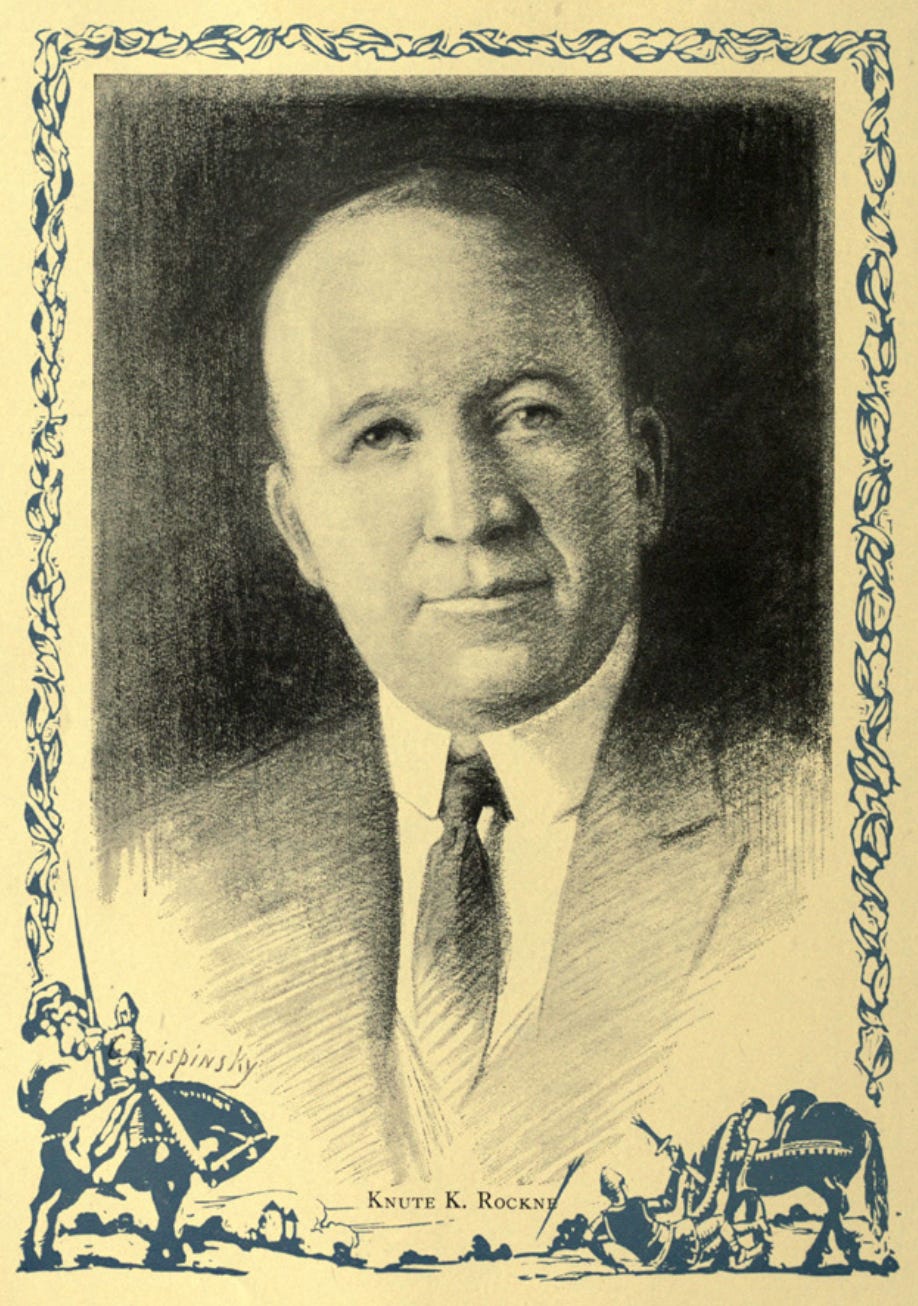Today's Tidbit… Knute Rockne and Hire's Remorse
Over the last fifty years, many top football coaches have jumped jobs, and the same was true in the old days. Heisman, Warner, and others changed positions regularly. Even Stagg had to jump jobs after Chicago forced him to retire following 41 years of service. Then and now, few played at one school and moved up the coaching ladder at their alma mater before becoming highly successful head coaches there.
One who followed that path was Knute Rockne, who played at Notre Dame from 1910 to 1913, assisted there from 1914 to 1917, and was the head coach from 1918 through 1930 and achieved a nearly 90% winning percentage, the highest in major college football history.
Although Rockne was a student or coach at Notre Dame from 1910 until he died in 1930, that does not mean he did not look around, negotiate a deal, and sign a contract with another school since that is exactly what he did with Columbia in 1925. So, let's double back to see where Notre Dame and Columbia stood in the football universe that year and how the Rockne to Columbia deal went down.
From the game’s beginning to the 1920s, Columbia had little football success, dropping the game due to its violence from 1906 through 1914. However, sitting in New York City in the Roaring Twenties where Wall Streeters became millionaires overnight, the Bears and Bulls had cash available to enhance the Lions’ gridiron prospects. In 1922, that cash helped lure four-time national championship coach Percy Haughton, who earned $15,000 per year plus another $10,000 from wealthy alums. Unfortunately, Haughton died after falling ill during a 1924 practice,
Notre Dame, meanwhile, rode Rockne and the Four Horseman to a 10-0 record in 1924, galloping to a Rose Bowl win and national championship. Rockne entered that year with a 10-year contract paying $10,000 per year, and while the cost of living was a bit lower in South Bend than on the east side of Manhattan, Rockne was a fella that liked money.
After Columbia finished the 1925 season 6-3-1 and Notre Dame ended with a 7-2-1 record, Columbia and Rockne began talking. By December 1, he agreed to a three-year contract to coach the Morningside Heights boys for the same $15,000 given to Haughton, subject to the approval of the athletic board. If you believe Columbia, Rockne did not mention during the negotiation that he remained under contract with Notre Dame.
The Rock appears to have stewed on his decision and did not discuss a possible release with Notre Dame, and after much hire's remorse, he wrote to Columbia indicating he could not obtain a release from his contract. Columbia later claimed they did not receive that letter from Rockne, so Columbia's athletic board met on Friday, December 11, approved Rockne's contract, and proudly announced their hiring coup to the football world. Then, everything blew up that evening and the next day.
As the news made the rounds, Rockne called Father Mathew Walsh, Notre Dame's president, telling him he had not signed with Columbia and intended to remain in South Bend. Rockne, who has in Philadelphia in advance of an NFL game featuring a few of the Horsemen, headed to New York on Saturday to straighten things out. He told Columbia he was under contract with Notre Dame and did not plan to ask for his release.
Later that day, Columbia announced they were withdrawing their offer and would look elsewhere for a coach, so the Rock was no longer stuck in a hard place. Still, several days of he-said-she-said followed, and each party had plenty of egg on their faces. In the end, the game's top coach stayed put while Columbia retained their one-year substitute, Charles Crowley, for four more seasons. Columbia hired Lou Little in 1930, bringing on Columbia's football glory years, including a national champion and Rose Bowl-winning 1933 team.
The hiring merry-go-round was an embarrassment to Rockne and Notre Dame, but they went 35-8-3 over the next five years, so all was forgotten, if not forgiven.
Football Archaeology is reader-supported. Click here to buy one of my books or otherwise support the site.




